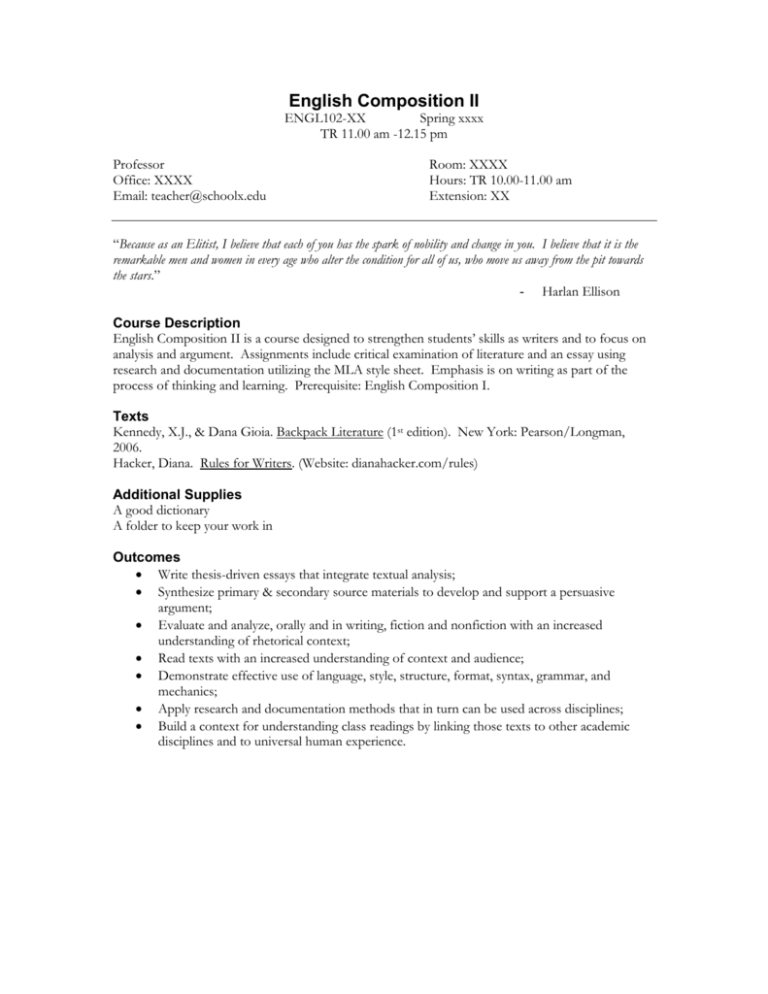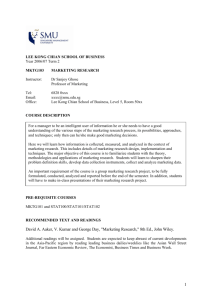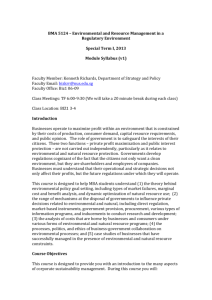
English Composition II
ENGL102-XX
Spring xxxx
TR 11.00 am -12.15 pm
Professor
Office: XXXX
Email: teacher@schoolx.edu
Room: XXXX
Hours: TR 10.00-11.00 am
Extension: XX
“Because as an Elitist, I believe that each of you has the spark of nobility and change in you. I believe that it is the
remarkable men and women in every age who alter the condition for all of us, who move us away from the pit towards
the stars.”
- Harlan Ellison
Course Description
English Composition II is a course designed to strengthen students’ skills as writers and to focus on
analysis and argument. Assignments include critical examination of literature and an essay using
research and documentation utilizing the MLA style sheet. Emphasis is on writing as part of the
process of thinking and learning. Prerequisite: English Composition I.
Texts
Kennedy, X.J., & Dana Gioia. Backpack Literature (1st edition). New York: Pearson/Longman,
2006.
Hacker, Diana. Rules for Writers. (Website: dianahacker.com/rules)
Additional Supplies
A good dictionary
A folder to keep your work in
Outcomes
Write thesis-driven essays that integrate textual analysis;
Synthesize primary & secondary source materials to develop and support a persuasive
argument;
Evaluate and analyze, orally and in writing, fiction and nonfiction with an increased
understanding of rhetorical context;
Read texts with an increased understanding of context and audience;
Demonstrate effective use of language, style, structure, format, syntax, grammar, and
mechanics;
Apply research and documentation methods that in turn can be used across disciplines;
Build a context for understanding class readings by linking those texts to other academic
disciplines and to universal human experience.
English Composition II
2
Criteria
Your grade for the course is based on the following:
1 in-class essay
3 in-class presentations (equivalent to one paper grade)
“One minute” papers
3 short analytical papers
2 research projects (with documented sources)
Quizzes
Grammar code (equivalent to one paper grade)
Deportment (equivalent to one paper grade)
Class Methodology
Reading, writing, revision, lecture, discussion, group work, exercises, quizzes, peer-assessments, selfassessment and conference.
In-class Essays
The in-class essay, not graded but required, will serve as a preliminary sample of your ability as a
writer.
In-class Presentations
Each student will give three short presentations on three different literary terms. The presentations
should be approximately two minutes long, and are to be given from your seat in class. The
presentation must include the following points:
1. A definition of the literary term in your own words.
2. An example of the term in your own words.
3. A demonstration of how the term operates in a work of literature covered during the week
you give your presentation.
If you are absent on the day you are scheduled to present, you must complete the presentation by the
next class. Failure to do so will result in a grade of 0. An average of the three presentations counts
as one paper grade. Students who deliver all three presentations will have the lowest grade dropped
and the average taken from the remaining two grades.
“One Minute” Papers
“One Minute” papers are brief, in-class writing assignments that gauge how well you are processing
the course information. Like the in-class essay, the “one minute” paper is required but not graded.
There are no make-ups for this assignment.
Analytical Papers
You will write three (3) analytical papers this semester. The first paper will focus on one short story;
the second on The Glass Menagerie; the third on interpreting several lines of poetry. (You will receive
separate, detailed assignment sheets for each paper.) Your paper should offer analysis of the work
and include a quote that supports your interpretation. Papers should be 400-500 words,
approximately. Check the course schedule for due dates.
Research Projects
These assignments will introduce the student to finding, reading and assessing critical material based
on the literature we read in class. You will want to consult Chapter 27: Writing About Literature
(1067-1093) for tips on generating ideas, working with source material and formatting your term
paper. The goals of this assignment are:
1. To introduce you to the process of gathering research
2. To read and think about literary criticism
English Composition II
3
3. To learn how to incorporate and document secondary sources with your writing
4. To structure and write a longer, academic paper
Each research paper is the equivalent of two short papers. The topics of these projects will vary and
will be explained in further detail during the semester.
Late Papers
A paper is discounted one-third of a letter grade for each day it is late. For example, a paper that
deserves a B+, but comes in two days late, will receive a B-. If a paper is submitted past the third
class after a due date, it will not be accepted.
Standards for Writing
Essays written outside of class should be double-spaced and typed with one-inch margins on all
sides. The use of word processing will facilitate the process of revision. For assignments when you
do not have access to word processing, please write legibly with blue of black ink on white theme
paper. Write on one side of the paper only.
Note: It is your responsibility to hold all papers, quizzes, et cetera, until you receive a final grade.
Workshops
We will hold writing workshops throughout the semester. You will find these workshops helpful and
productive. Although having the class critique your writing may seem daunting at first, I guarantee
the experience will improve your writing considerably.
Revising Assignments
You have the option to revise one of your papers. The revision (accompanied by the original draft
plus a one-page assessment explaining the changes you made) must be submitted by the last class.
When revising assignments, focus on content and organization issues. I do not want to see a final
draft where the only corrections are spelling and grammar errors. Fixing spelling errors or adding a
coma are the last problems to deal with. When you resubmit your essay, your revisions should be
highlighted to note the changes you have made.
Quizzes
The quizzes will test your understanding of the course material. You can expect to be quizzed on the
course readings and terminology. An average of the quizzes is equivalent to one short paper. If you
are absent on the day a quiz is given, you must make the quiz up by the following class.
Grammar Log
You are expected to have an understanding of the rules of English grammar. Any grammar errors I
find in your drafts will be flagged with the appropriate number, indicating the error. It is your
responsibility to consult the Hacker handbook and correct the error. You will do this for each
written assignment, handing in the complete grammar log at the end of the semester. Your grammar
log grade is equivalent to one paper grade.
Attendance
College policy allows 5 hours of absence per class per semester. This translates into 3 classes in a TR schedule. Beyond this limit, absence will result in a lower grade and/or failure. You are
responsible for what happens in this class, whether you are here or not. Please try to avoid missing
any class time.
English Composition II
Pagers and Cell Phones
Turn off your pager and/or cell phone before entering class. Pagers and cell phones are a scourge
and an imposition and will not be tolerated. If a cell phone goes off during class time, I reserve the
right to answer it.
Email Guidelines
To safeguard against email abuse, students are required to follow the guidelines listed below.
Emails will be answered in a professional and courteous manner; therefore, they should be
written in a professional and courteous manner.
I DO NOT accept papers via email.
Emails sent after 5:00 P.M. will not be answered until the next day.
Questions concerning course policy already stated in the syllabus will not be answered.
Emails stating the student will not be attending class doe to illness may not be answered but
will be noted.
Do not send me an email asking me to find a topic for you. I can help you narrow your
topic, I can help you sharpen your thesis; but before I can do this, you must come up with a
topic on your own.
DO NOT send me junk email (this includes jokes and chain letters).
Plagiarism
“When a man’s talk is commonplace and his writings uncommon, it means that
his talent lies in the place from which he borrows it, and not in himself.”
- Montaigne
Plagiarism means using another person’s words or ideas without giving that person credit. It is a
form of cheating and theft, but it can be easily avoided by using the documentation we will practice
this semester. Plagiarism means and F (entered into my gradebook as a 0) for the paper and may
mean and F for the course.
Grading Formula
Here is the formula I use to compute your final grade:
Pres. S.P.
R.P.#1
R.P.#2
Quiz
G.C.
Deport.
82
78
83
90
68
88
75
73
x2
x2
+87
82 + 238 + 166 + 180 + 68
+ 88 + 75
= 897
RAW SCORE: 897 (897 ÷ 11 = 81.5 -or- 81)
COURSE GRADE: BNow, here is what would happen if a student had absences over the limit:
Excessive absences: 2
Point deduction: 2 x 0.05 = 0.1; 0.1 x 897 = 89.7; 897 - 89.7 = 807.3.
ADJUSTED RAW SCORE: 807.3 (807.3 ÷ 11 = 73.3 -or- 73)
COURSE GRADE: C
4
English Composition II
5
Grading
Here is a breakdown of what each letter grade means.
A = a thoroughly engaging paper. The essay presents original ideas in a unique way. Paper has a
clearly defined thesis, well developed ideas and examples that help explain the main idea. The writing
is fresh, clear and imaginative. There are no errors in spelling or grammar. Effective transitions are
employed throughout the essay. Source material is seamlessly integrated with the student’s writing.
The MLA documentation is correct.
B = a strong effort. The B essay may demonstrate some original thought and solid writing, but it
also lapses into trite thinking or clichés. Analysis of the work is not fully thought out. The paper has
some grammatical errors. Source material is not successfully integrated. Paper has gaffs in MLA
documentation.
C = average work. Paper takes care of the basics, although it did not fully entice the reader. The
writing in the C essay is functional, but not engaging; it makes a point, but not a very interesting one.
Analysis is shallow, examples are dull. Essay relies too much on summary. Source material is
occasionally presented without citation and not fully integrated with the student’s own writing.
Often times, the works cited section is riddled with errors.
D = a paper in trouble. This essay demonstrates no effort on the student’s part. The D paper
exhibits poor writing, little thought and numerous errors in grammar and spelling. The paper feels as
if it was dashed off in under an hour. Chances are there is too much summary and not enough
analysis in this D paper. This essay fails to persuade and does not correctly utilize source material.
Often times the D paper does not include a works cited page.
R = a paper that must be revised before a grade can be given. Most often, the problem with the R
paper is that it is nothing but summary, or that it does not adhere to the paper guidelines. If one of
your papers receives an “R”, you must revise it and hand it in by the next class meeting.
F = a substandard essay. The F paper fails to meet the standards of college-level work.
Accommodations
Students with disabilities who believe that they may need accommodations in the classroom are
encouraged to contact the Learning Disabilities Coordinator, Andrea Henry, at x1805 or the
Disability Counselor, Mary Berg, at x
as soon as possible in order to ensure that such
accommodations are implemented in a timely fashion.
Course Schedule
All events subject to change
Reading assignments are for the day they are listed under.
(Page numbers are in parenthesis and indicate the page the piece begins.)
WEEK ONE
Class: Introductions. Go over course guidelines.
Class: In-class essay.
Readings: Chopin, “The Storm” (87).
English Composition II
6
WEEK TWO
Class: Story and Plot; discuss Maugham and Aesop.
Readings: Chapter 1 - Reading a Story (3); Maugham, “The Appointment in Sumarra” (4); Aesop,
“The Fox & the Grapes” (5).
Class: Point of View; student presentations; discuss Updike and Faulkner.
Readings: Chapter 2 - Point of View (23); Updike, “A&P” (15); Faulkner, “A Rose for Emily” (30).
WEEK THREE
Class: Character; student presentations; discuss Poe and Walker. Discuss first short paper assignment.
Readings: Chapter 3 - Character (46); Poe, “The Tell-Tale Heart” (39); Walker, “Everyday Use” (59).
Class: Character, student presentations; discuss Carver and Joyce.
Readings: Carver, “Cathedral” (68); Joyce, “Araby” (249).
Quiz #1
WEEK FOUR
Class: Setting; student presentations; discuss Boyle and Kafka.
Readings: Chapter 4 - Setting (84); Boyle, “Greasy Lake” (92); Kafka, “Before the Law” (255)
Due: Short Paper #1
Class: Library Orientation.
WEEK FIVE
Class: Writing workshop; Tone and Style; student presentations; discuss Hemingway and Jin. Discuss
first research project.
Readings: Chapter 5 - Tone and Style (122); Hemingway, “A Clean, Well-Lighted Place” ( 127); Jin,
“Saboteur” (149).
Class: Theme; Symbol; student presentations; discuss Steinbeck and Gilman
Readings: Chapter 6 - Theme (162); Gilman, “The Yellow Wallpaper” (170) Chapter 7 - Symbol (186);
Steinbeck “The Chrysanthemums” (189).
WEEK SIX
Class: Introduction to drama; student presentations; discuss Glaspell.
Readings: Chapter 22 - Reading a Play (567); Glaspell, Trifles (570).
Due: Research Project #1
Class: Modern Theater; student presentations; view selections from The Glass Menagerie.
Readings: Chapter 25 - The Modern Theater (just the text - you do not have to read the Ibsen or
Sanchez-Scott plays); Williams, The Glass Menagerie (951).
Quiz #2
WEEK SEVEN
Class: Student presentations; continue viewing & discussing The Glass Menagerie.
Readings: continue reading The Glass Menagerie.
Class: Wrap-up on The Glass Menagerie. Discuss second short paper assignment.
Readings: Finish reading The Glass Menagerie, if you haven’t already.
WEEK EIGHT
English Composition II
Class: The Theater of Shakespeare; student presentations.
Readings: Chapter 24 - The Theater of Shakespeare (658-660); “Breaking the Language Barrier” (773)
Class: Discuss and view selections from Othello.
Readings: Shakespeare, Othello, Acts I & II (660).
WEEK NINE
Class: Discuss and view selections from Othello; discuss second research project.
Readings: Othello, Acts III & IV.
Due: Short Paper #2
March
Class: Wrap-up discussion for Othello.
Readings: Othello, Act V.
Quiz #3
WEEK TEN
Class: Reading poetry; student presentations; discuss Yeats & Browning.
Readings: Chapter 9 - Reading a Poem (306); Yeats, “The Lake Isle of Innisfree” (310); Browning,
“My Last Duchess” (319).
April
Class: Voice in poetry; student presentations; discuss Roethke, Bradstreet, Hughes & Williams.
Readings: Chapter 10 - Listen to a Voice (324); Roethke, “My Papa’s Waltz” (324); Bradstreet, “The
Author to Her Book” (326); Hughes, “Theme for English B” (336); Williams, “The Red
Wheelbarrow” (339).
Due: Research Project #2
WEEK ELEVEN
Class: Words; student presentations; discuss Owen, Williams and Graves.
Readings: Chapter 11 - Words (349); Owen, “Dulce et Decorum Est” (344); Williams, “This is Just to
Say” (350); Graves, “Down, Wanton, Down!” (351).
April
Class: What words can suggest; student presentations; discuss Blake, Frost and Hayden.
Readings: Chapter 12 - Saying and Suggesting (368); Blake, “London” (370); Frost, “Fire and Ice”
(373); Hayden, “Those Winter Sundays” (518).
WEEK TWELVE
Class: Figures of Speech; student presentations; discuss Shakespeare, Plath and Kenyon.
Readings: Chapter 14 - Figures of Speech (389); Shakespeare, “Shall I Compare Thee to a Summer’s
Day?” (390); Plath, “Metaphors” (394); Kenyon, “The Suitor” (400).
Class: Rhythm in poetry; student presentations; discuss Brooks, Housman and Robinson.
Readings: Chapter 16 - Rhythm; Brooks, “We Real Cool” (423); Housman, “When I was one-andtwenty” (430); Robinson, “Miniver Cheevy” (543).
Quiz #4
WEEK THIRTEEN
Class: Advising for Fall Semester - No Class.
Class: View documentary on Joseph Brodsky; discuss third paper assignment.
7
English Composition II
WEEK FOURTEEN
Class: Symbols in poetry; student presentations; discuss Matthew, Frost Stevens and Shelley.
Readings: Chapter 19 - Symbol (467); Matthew 13:24-30 (472); Frost, “The Road Not Taken” (474);
Stevens “Anecdote of the Jar” (477); Shelley, “Ozymandius” (546).
Class: Discuss Olds, Walcott and Wright.
Readings: Olds, “Rites of Passage” (342); Olds, “The One Girl at the Boy’s Party” (535); Walcott,
“The Virgins” ( 556); Wright, “Autumn Begins in Martins Ferry, Ohio” (561).
Due: Grammar Code
WEEK FIFTEEN
Class: Tie-up loose ends.
Quiz#5
Due: Short Paper #3
Due: Revision of one paper
8








